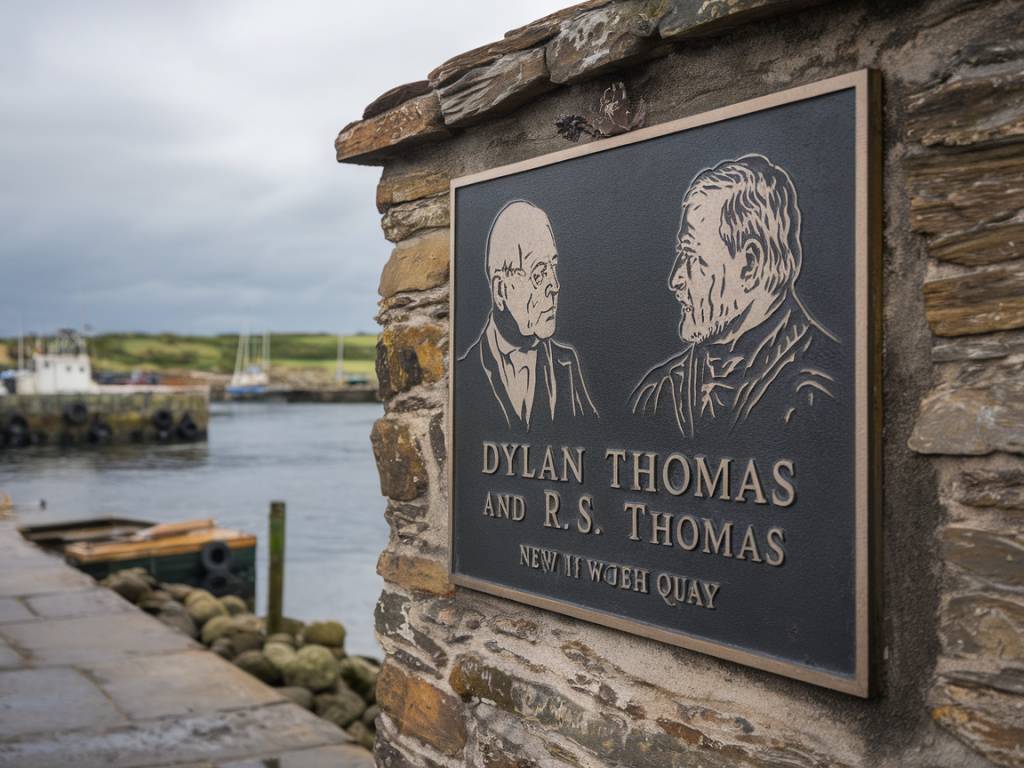Poetry in the Land of Song: A Legacy of Welsh Verse
Wales is often dubbed “The Land of Song,” a fitting title not only for its rich musical heritage but also for its profound literary tradition. Nestled among the rolling hills and rugged coastlines is a history brimming with poets who captured the essence of Welsh culture, identity, and landscape. These wordsmiths didn’t just pen verses; they shaped how Wales sees itself and how the world sees Wales. Let’s explore the lives and impact of some of the most famous Welsh poets.
Dafydd ap Gwilym: The Enigma of Medieval Wales
Centuries before Dylan Thomas became a household name, Dafydd ap Gwilym was enchanting audiences with his lyrical poetry in the 14th century. Often considered one of the greatest Welsh poets of all time, Dafydd’s masterful use of cynghanedd (a form of strict alliteration and harmony in Welsh poetry) elevated him to legendary status.
His work often revolved around love, nature, and even humor. Take, for instance, his poem « The Girls of Llanbadarn, » where he comically laments his inability to impress the local women. Yet, behind the wit and charm, Dafydd’s poetry subtly reflects the cultural and spiritual fabric of medieval Wales. His verses painted vivid images of forests, rivers, and birds, many of which continue to captivate contemporary readers.
Today, Dafydd ap Gwilym is celebrated for creating a bridge between the oral and written traditions of Welsh literature. Have you ever strolled through a Welsh woodland and felt poetic inspiration? You may have Dafydd to thank for that!
Dylan Thomas: The Voice of Modern Wales
Few poets have left as deep a mark on global literature as Dylan Thomas. Born in Swansea in 1914, Thomas’s work transcends time and geography. His evocative poems—rich with imagery, rhythm, and emotion—remain a cornerstone of both Welsh and English literature.
His best-known piece, « Do Not Go Gentle into That Good Night, » is not only a plea against the inevitability of death but also an unyielding declaration of life itself. On the other hand, his « Under Milk Wood »—an affectionate depiction of life in a fictional Welsh fishing village—brings to life the humor, quirks, and traditions of Welsh communities.
Want to immerse yourself in Dylan’s legacy? Visit his boathouse in Laugharne, Carmarthenshire, where he lived and wrote some of his most celebrated works. It’s a pilgrimage for literary lovers and a chance to walk in the footsteps of a legend.
Hedd Wyn: The Tragic Poet of War
Every poet carries a story, but few are as poignant as that of Hedd Wyn, a pen name for Ellis Humphrey Evans. Born in Trawsfynydd in 1887, he grew up surrounded by the pastoral beauty of Snowdonia, which inspired much of his early poetry. However, it was the horrors of World War I that would define his legacy.
Hedd Wyn’s best-known poem, « Yr Arwr » (The Hero), won the prestigious bardic chair at the 1917 National Eisteddfod. Tragically, Hedd Wyn never lived to see his triumph; he was killed during the Battle of Passchendaele just weeks before his win was announced. The empty chair draped in black at the Eisteddfod remains one of the most haunting symbols of the war’s devastation.
His poetry lives on, a reminder of the cultural and human cost of conflict. If you find yourself in Snowdonia, take a moment to visit Yr Ysgwrn, Hedd Wyn’s preserved family home, to reflect on his life and work.
R.S. Thomas: A Poet of Faith and Nature
R.S. Thomas was not just a poet but a spiritual commentator, weaving themes of faith, identity, and rural life into his deeply introspective works. Born in 1913, Thomas spent much of his life as a clergyman in remote Welsh parishes, an experience that profoundly influenced his poetry.
His poems often wrestle with questions of spirituality and humanity. In « The Bright Field, » for instance, Thomas speaks of the fleeting beauty of life and the need to cherish the moments that truly matter. He was also a staunch advocate for Welsh nationalism and the preservation of the Welsh language, making his voice a rallying cry for cultural identity.
Thomas’s ability to marry the spiritual with the tangible left an indelible mark on Welsh literature. His legacy invites us to reflect on how our landscapes and beliefs shape us; perhaps a quiet country church or a windswept hill will never look the same after reading his work.
The Eisteddfod: A Celebration of Poetic Heritage
No discussion of Welsh poets would be complete without mentioning the National Eisteddfod, an annual festival celebrating Welsh culture, language, and literature. While poets like Dafydd ap Gwilym, Hedd Wyn, and R.S. Thomas are etched into history, the Eisteddfod continues to spotlight emerging talent.
Dating back to at least the 12th century, the Eisteddfod remains one of Wales’s most cherished traditions. Poets compete for the coveted bardic chair, an honor steeped in ceremony and pride. If you ever have the chance to attend, don’t miss the Gorsedd of the Bards ceremony—a spectacle blending poetry, druidic customs, and Welsh heritage in a way that feels timeless.
The Enduring Influence of Welsh Poets
From medieval jesters to modern-day storytellers, Welsh poets have shaped not only the literary world but also how Wales is perceived on the global stage. They’ve celebrated the country’s landscapes, preserved its language, and explored universal themes that resonate far beyond its borders.
So, next time you find inspiration in the green valleys, misty mountains, or crashing waves of this remarkable land, remember that you’re in good company. For centuries, poets have walked these paths, pen in hand, capturing the soul of Wales in words. Now, it’s your turn to let their verses inspire you.

